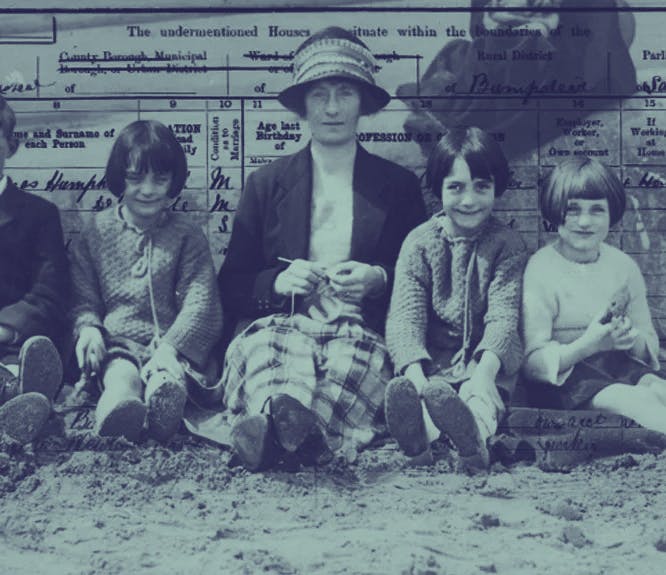An expert's guide to discovering census history with five must-read books
4-5 minute read
By Guest Author | November 3, 2022
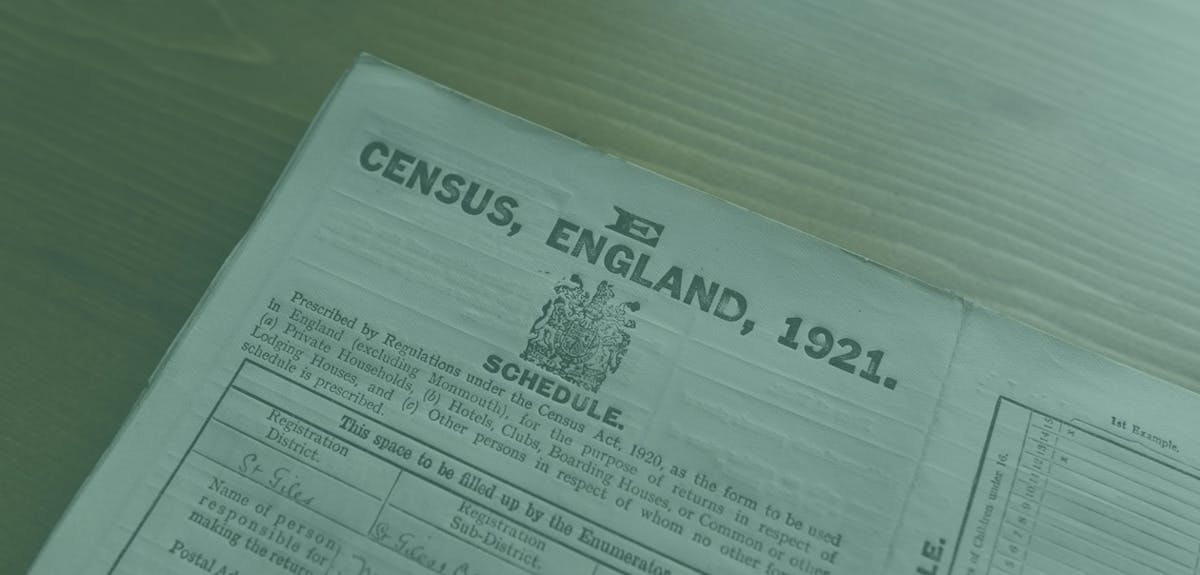
In-house expert Mary McKee takes us through her top five resources for learning more about the British census.
The census is an incredible resource. It not only gives us those biographical details that help us trace our ancestors every ten years, but it gives a snapshot of the entire country. It is like peeking into the windows – and the portholes – of every home and ship in the country. When Findmypast won the tender to digitise the 1921 Census of England and Wales in 2018, I became obsessed with the history of the census and that obsession has continued through to the present day. Here is my list of the top books about the British census.
1. Making Sense of the Census Revisited - Edward Higgs
If you want to understand the history of the immense operation of the British census, this is your go-to book. Edward Higgs worked at the Public Record Office, today known as The National Archives (TNA). He has been able to detail the history of each census from 1801 until 1911. At the time the book was written, the 1911 Census was the last available census.
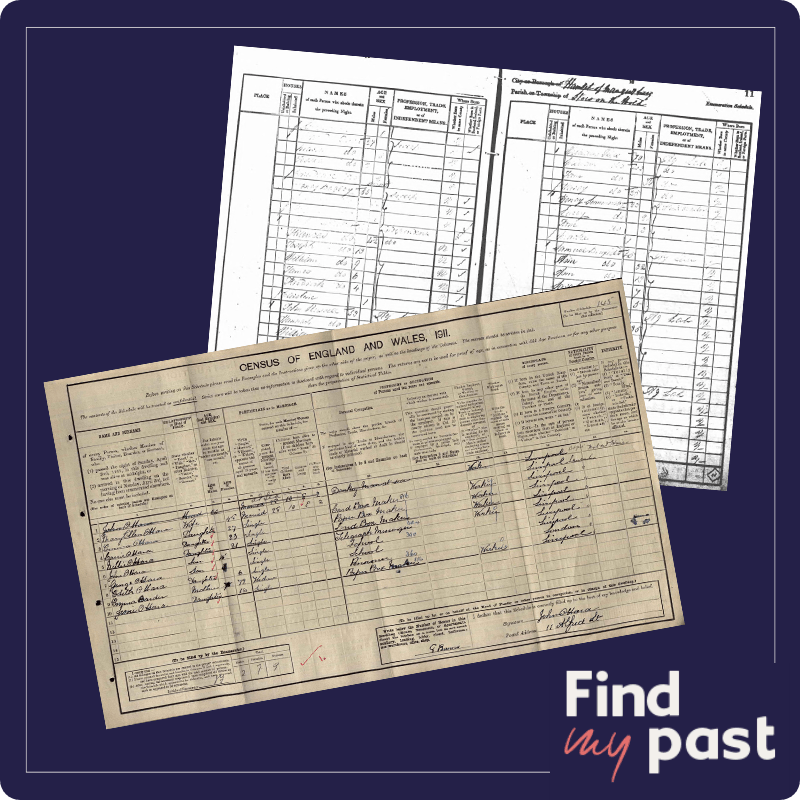
An 1841 Census return versus a 1911 Census return.
He has provided incredible detail about each question on the census and how some changed from one census to the other. Higgs also provides interesting insights into who led the census, what their motives were and how that affected their final forms. This is my top recommendation if you want to understand the history of the British census.
2. Tracing Your Ancestors Using the Census - Emma Jolly
This book was written with the family historian in mind. Unlike Higgs’ book, this isn’t just a history of the census but focuses on how to get the most out of the census for your research. Jolly does begin with some insight into the history of the census, but each chapter is dedicated to each of the modern censuses from 1841 to 1911. With each chapter, Jolly pulls out the nuances of each census and what makes each one unique.
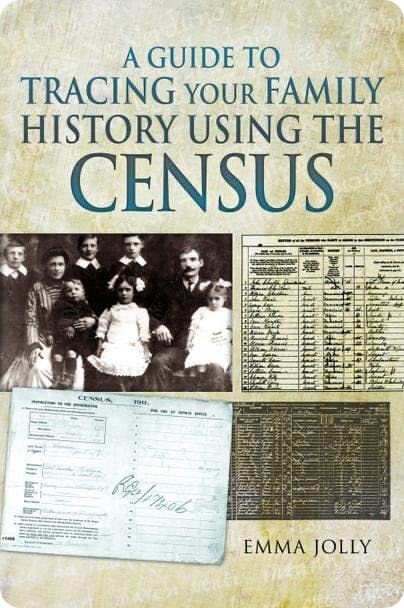
A Guide to Tracing Your Ancestors Using the Census.
Each chapter opens with a historical timeline, which is a great tool to understand the historical context of when the census was being taken. It will help you to understand the political atmosphere at the time and what your ancestor was experiencing. The book was originally published in 2013 and although it has been republished multiple times since then, some of the recommendations for online resources may be out of date. If you have an e-reader, I recommend purchasing a digital version of this book to take advantage of provided useful links.
3. Vanishing for The Vote - Jill Liddington
In 1911, the suffragists used the census as a flash moment to protest women’s lack of the right to vote in Parliamentary elections. Jill Liddington plunges us into the turbulent politics of the Edwardian period. She details the story of census night, where hundreds of suffragettes evaded the census or refused to complete it. Others held ‘census parties’ where they all gathered in one house and refused to complete the forms - for example, 570 people stayed at Aldwych Skating Rink on census night.
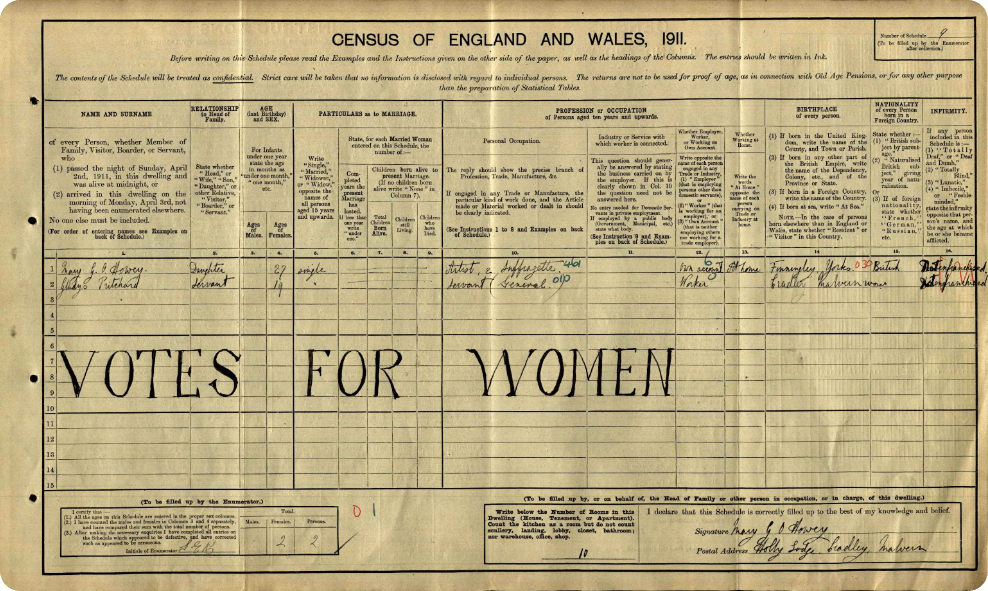
A 1911 Census return with 'Votes for Women' written across it. View this record here.
However, some used the forms as a platform and spoiled the return by writing ‘Votes for Women’ across it. This is a must-read book for both women’s history and census history. You can explore more suffragette history with Findmypast’s extensive Suffragette Collection.
4. The Official History of Britain: Our story in numbers as told by the Office for National Statistics - Boris Starling with David Bradbury
This is the most recently published book on the list. The Office for National Statistics (ONS) sponsored this book ahead of the 2021 Census and remarkably this was published while we were digitising the 1921 Census onsite at the ONS. We know that the census is created for statistical analysis and not for the family historian.
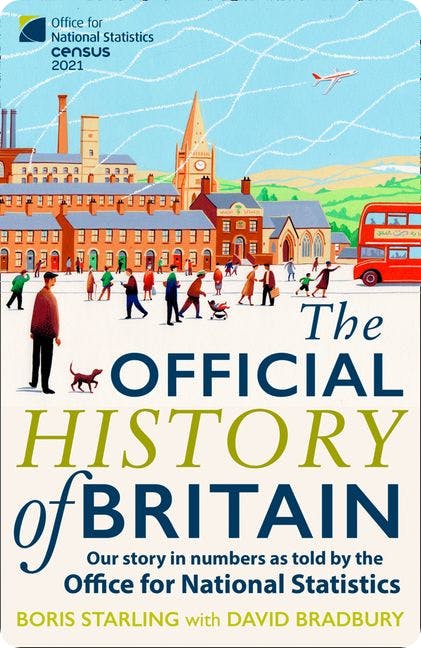
The Official History of Britain: Our story in numbers as told by the Office for National Statistics.
This book tells the story of Britain using fact and figures uncovered from the census. This is the only publication on this list that continues the story of the census beyond the 1911 Census. Even though the 1921 Census is the last to be released to the public we have access to all the statistical census data from every census before 2021. It doesn’t aim to be an overarching history of the nation but more of a snapshot, in the same way a census is a snapshot. It is a fascinating exploration of what the numbers can tell us about our names, family sizes, employment, and the ethnicity of Britain.
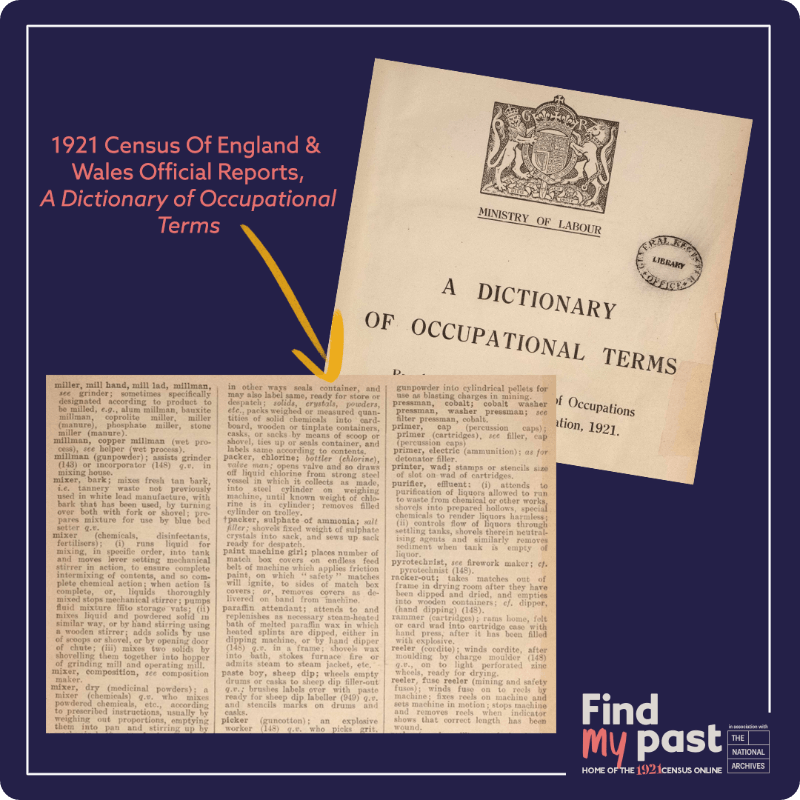
A Dictionary of Occupational Reports from the 1921 Census of England and Wales Official Reports.
If you want to take a deep dive into the census statistics we have digitised and made available all of the 1921 Official Reports.
5. The Butcher, The Baker, The Candlestick-Maker: The story of Britain through its census since 1801 - Roger Hutchinson
The other books listed tell us the history of the census from an administrative point of view and the decisions made over questions and execution, but Hutchinson’s book brings the whole census to life. He uses the decennial tradition to tell Britain’s vivid and entertaining history since 1801, capturing the personal moments found within these biographical papers of the whole population.
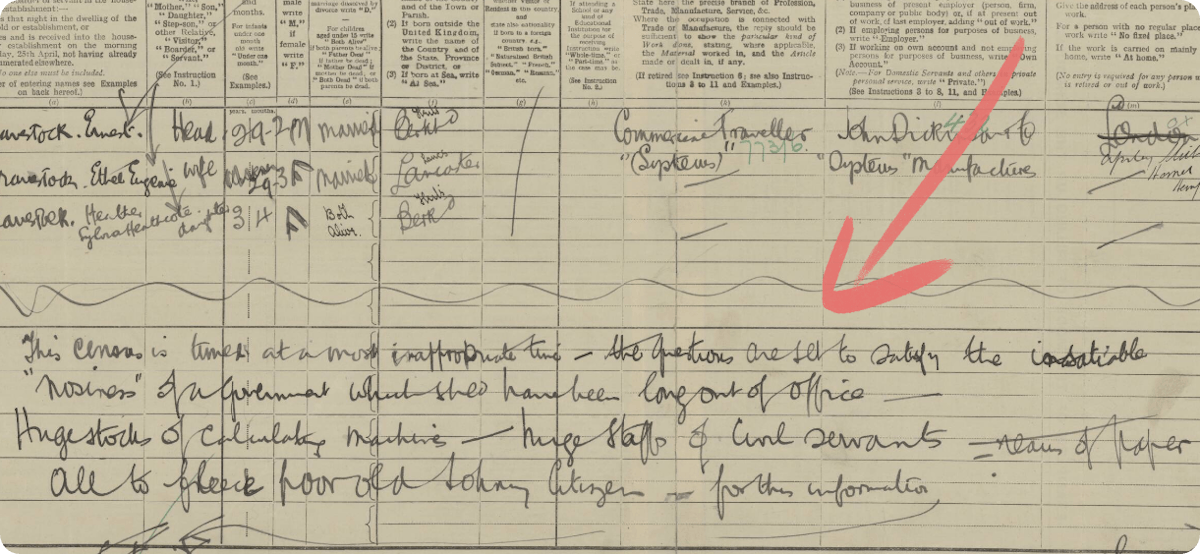
Many people used their census returns to make political statements or protests. View this record here.
While Jolly’s book does include a historical timeline, this book adds flesh to the bone by embedding the census within political turmoil or national celebrations.
Previously, the results of the census were a source used by statisticians and legislatures, but through digitisation, it has become a source of delight and intrigue for anyone who wants to access it. Start your exploration of the census with the 1921 Census of England and Wales today.
Related articles recommended for you
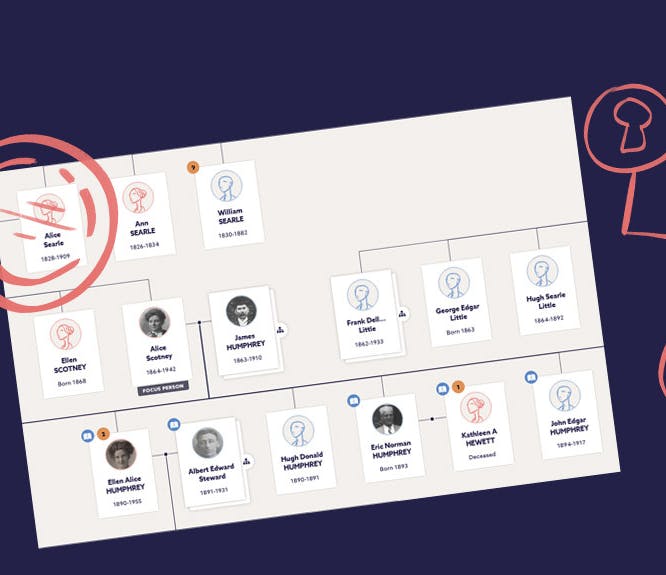
Your family tree questions answered
Build Your Family Tree
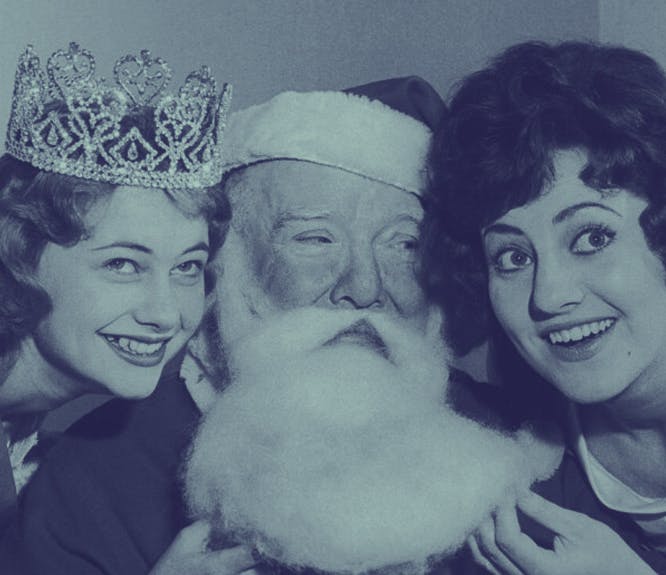
How old is Santa Claus?: Santa's family tree goes back further than you might think
Build Your Family Tree
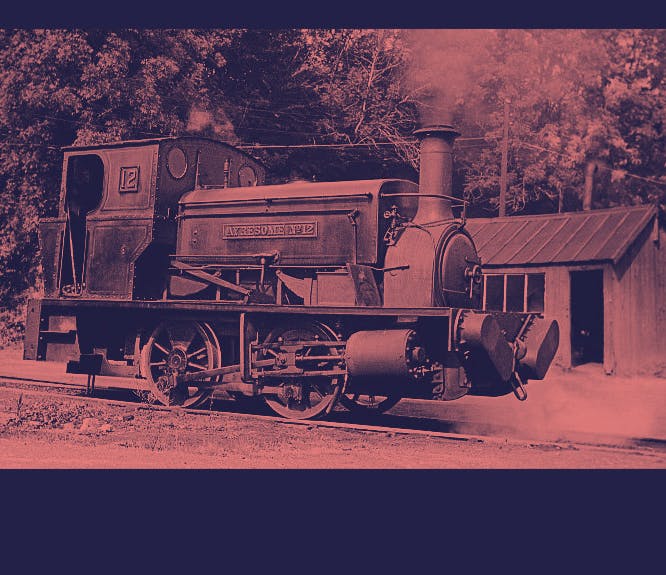
Unlocking local history with a one place study
History Hub
